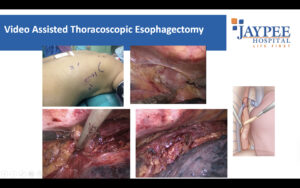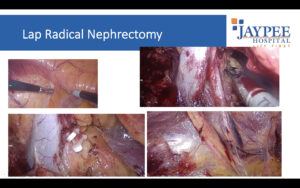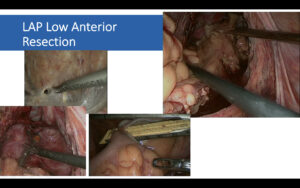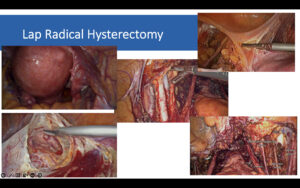Minimal Invasive Cancer Surgery refers to surgical procedures that limit the size of surgical incisions. Most cancer surgeries can be performed by Laparoscopic or Thoracoscopic Approaches which in turn leads to less blood loss, faster wound healing time, less associated pain and scarring, shorter hospitalisation time, lesser risk of infection, and post surgical complications. Nowadays, many conditions previously requiring open surgery can be treated with minimally invasive procedures.
Scope of MIS in Oncology
- Laparoscopic Radical Hysterectomy
- Laparoscopic Radical Gastrectomy
- Laparoscopic APR and Low Anterior Resection
- Laparoscopic Radical Hemicolectomy
- Laparoscopic Radical Nephrectomy
- Thoracoscopic Lung Resection
- VATS Decortication
- VATS Esophagectomy
- Lap Assisted Surgery for Retroperitoneal Sarcomas
- Laparoscopic Radical Cholecystectomy
Benefits of MIS in Cancer Surgery
- Shorter hospital stay & faster recovery
- Less postoperative pain
- Fewer operative and post-operative complications
- Keyhole Surgery
- Reduced operating time
- Better exposure and access – pelvis, thorax
- Equivalent nodal clearance and overall outcomes
Minimally Invasive Surgery is gradually becoming the NEW STANDARD OF CARE in CANCER SURGERY




